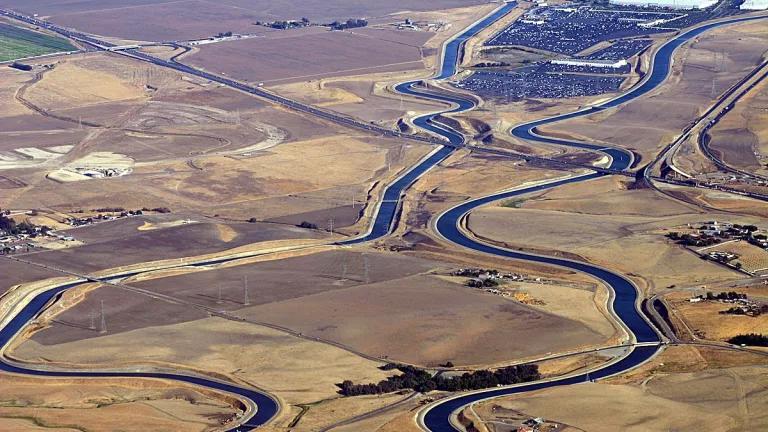CA’s Transformative Food & Farm Campaign Will Continue in 2024
The California Legislature adjourned in September, officially turning the Food & Farm Resilience Coalition's climate bond campaign into a two-year effort.

An aerial view of Radical Family Farms in Sebastopol, California, in June 2021. Radical Family Farms uses chemical-free, no-spray, non-GMO, low till regenerative agriculture methods to grow Asian heritage vegetables, herbs and flowers, and has bi-weekly produce box and flower bouquet programs.
John Brecher for NRDC
The California Legislature adjourned in September, officially turning our climate resilient food and farm campaign into a two-year effort. AB 408, the Climate-resilient Farms, Sustainable Healthy Food Access, and Farmworker Protection Bond Act of 2024, was introduced by Assemblymember Lori Wilson in January 2023. The bill proposes $3.65 billion for infrastructure that would reduce agriculture’s greenhouse gas emissions while bringing healthier food options to California communities and increasing protections for our essential farmworkers. The progress AB 408 made through the Legislature (it passed out of the Assembly and all three of its Senate committees), its long list of Assembly and Senate coauthors, and its bipartisan support sends a very clear message: Investments in climate change MUST include funding for agricultural resilience and a healthier food system.
AB 408’s progress parallels two other climate bonds (both of which are also 2-year bills): AB 1567, introduced by Assemblymember Eduardo Garcia, and SB 867, introduced by Senator Ben Allen, also propose substantial investments to fight climate change. Both measures include some funding for agriculture ($520 million and $300 million respectively), which is a big improvement from previous climate bonds. Unfortunately, both proposals need to be improved to provide what’s needed to mitigate agriculture’s climate change contributions and realize the potential of climate-friendly farming and ranching.
Agriculture contributes approximately 8% of the state’s total greenhouse gases. That percentage would be much higher if it accounted for emissions throughout the entire food and farming supply chain. AB 408’s proposed investments tackle system-wide emissions, and drive resilience strategies in California’s food and farming sector. AB 408 would fund sustainable agriculture practices, farmworker health and safety, and infrastructure that increases access to healthy foods and builds regional food economies.
Thankfully, with its bipartisan support, significant contributions from grassroots communities, support from more than 150 organizations across the state, and its successful journey through the legislative process this year, AB 408 is an ideal vehicle to center climate bond negotiations on food and agriculture. When the legislature reconvenes in January 2024, the Food and Farm Resilience Coalition, which NRDC co-leads, will ramp up our pressure to secure the scale of investments needed to fully address California agriculture’s climate impact.





